Sureté du Québec Mario has been a police officer for 27 years, the last 12 of which have been investigating organized crime. For over 12 years, Mario has specialized in clandestine laboratory dismantling. He has been an investigator, team leader and division lieutenant, which includes the designer drugs team. Mario is also a trainer at the National Police School of Quebec (ENPQ) for the organized crime investigation and synthetic drug investigation course. He has been the head of the Organized Crime Investigation and Coordination Service department for three years. For the last ten years, Mario has been involved in the dismantling of clandestine laboratories, and the specialist and reference in Quebec for any question concerning the phenomenon of synthetic drugs. Ontario Provincial Police Mr. Lamontagne is an executive with the Criminal Intelligence Service Canada (CISC) of the Royal Canadian Mounted Police (RCMP), and has been an executive for over 15 years. Mr. Lamontagne is currently the CISC director responsible for intelligence assessment, sharing and collection, notably providing guidance to the Canadian Law Enforcement Community on how to assess and prioritize threats. Prior to joining CISC in 2011, Mr. Lamontagne had 21 years of experience within the Canadian security and intelligence community, including with the Canadian Security Intelligence Service (CSIS), Privy Council Office (PCO) and the Canada Border Services Agency (CBSA). Mr. Lamontagne notably managed counter terrorism investigations following the multiple terrorist attacks against the United States of September 11th, 2001, and advised senior officials on terrorism and organized crime-related issues at PCO. Mr. Lamontagne has a Bachelor’s Degree of Science with honours from the University of Ottawa. He lives with his son on the Island of Manotick, outside of Ottawa. Dr. MacDonald is the physician lead at the Providence Crosstown Clinic in Vancouver, which was the site of the NAOMI and SALOME studies. He continues to supervise injectable opioid agonist therapies (iOAT) at the clinic. The clinic has been prescribing psychostimulants since 2016 for management of SUD as supported by RCT’s. Superintendent, Ontario Provincial Police Superintendent Bryan MacKillop is a Director within the Ontario Provincial Police(OPP) Organized Crime Enforcement Bureau. He currently manages organized crime matters for the OPP’s East, North East and North West regions, the provincial Organized Crime Major Case Management program, the OPP's Opioid Working Group and he is a member of the Canadian Integrated Response to Organized Crime (CIROC), National Methamphetamine Strategy, joint management team. Dr. Eugenia Oviedo-Joekes is a Professor at the School of Population and Public Health at the University of British Columbia, a Canada Research Chair in Person Centre Innovation in Addiction and Public Health and a Research Scientist at the Centre for Health Outcomes Evaluation, Providence Health Care. She obtained her degree in Clinical Psychology at the University of Cordoba (Argentina), a PhD in Social Psychology & Behavioural Sciences Methodology in Spain and post-doctoral studies at the Andalusian School of Public Health. Her main research area is in Public Health and Addictions, with a focus on innovative treatments for opioid use disorder, such as injectable opioid agonist treatment, for people that are not reached by the health care system. Current projects include working with patients and providers to optimize the uptake and effectiveness of these treatment alternatives that are expanding in Canada, using a person centered care approach. Dr. Palis is a Postdoctoral Fellow at the BC Centre for Disease Control and Department of Psychiatry at the University of British Columbia where her research is focused on interventions to reduce overdose among people with criminal justice system involvement. She has a PhD in Population and Public Health, where she investigated long-term patterns of cocaine and methamphetamine use among patients receiving treatment for opioid addiction. She has led recent research and knowledge translation efforts to expand prescribing of dextroamphetamine for the treatment of stimulant use disorder. Jennifer Pelley is the Acting Director of the Office of Legislative and Regulatory Affairs in the Controlled Substances Directorate at Health Canada. In this role, she is leading a strategic regulatory modernization initiative for regulations under the Controlled Drugs and Substances Act, as well as the development of proposed new regulations for supervised consumption sites and services. In a previous position at Health Canada, Jennifer was part of the team responsible for developing regulations to support the legalization of cannabis in Canada. Director, Canada Border Services Agency Rachel Remington has been director of Intelligence Collection, Analysis and Production at CBSA since 2019. She previously served five years as director of Transnational and Regional Intelligence at the Department of National Defence. She also held various positions at the Privy Council Office and the Communications Security Establishment. Chief Constable Mike Serr has served as a police officer for 30 years. He became the Chief Constable for the Abbotsford Police Department (AbbyPD) in September 2018, after joining AbbyPD as Deputy Chief Constable in November 2015. Prior to his appointment, Mike served as a 26 year member of the Vancouver Police Department where he worked in a variety of challenging positions, including as the officer in charge of the Organized Crime Section. The majority of Mike’s operational experience is in gang and drug suppression. He has worked for the British Columbia Organized Crime Agency, Integrated Gang Task Force, and British Columbia Municipal Undercover Program. Mike is active locally and nationally in committee work and is currently the Chairperson of the Drug Advisory Committee for the Canadian Association of Chiefs of Police (CACP), as well as the Chair of the CACP’s Special Purpose Committee on the Decriminalization of Illicit Drugs. He is the co-chair of the British Columbia Drug Overdose Task Groups, started the Abbotsford Opioid Working Group, is on the Advisory Council for Drug Free Kids Canada, and is a member of both Character Abbotsford and the Abbotsford Community Development Council. Royal Canadian Mounted Police S/Sgt. Derek Westwick leads the RCMP Clandestine Laboratory Enforcement and Response (CLEAR) team in British Columbia. Derek joined the team as a constable and for the past 11 years has been involved in a multitude of investigations targeting Organized Crime groups operating drug labs. The unit falls under the purview of RCMP Federal Serious and Organized Crime. The Federal RCMP CLEAR team is a specialized police unit that investigates and dismantles clandestine drug laboratories and processing the hazardous materials often found within. The Federal RCMP CLEAR team is based at RCMP “E” Division Headquarters, is a federally funded unit and is available to assist all RCMP Detachments and municipal police forces in British Columbia and the Yukon. Members of the RCMP CLEAR teams undergo specialized training, employ specialized PPE and equipment in order to safely dismantle these volatile and sometime explosive operations.
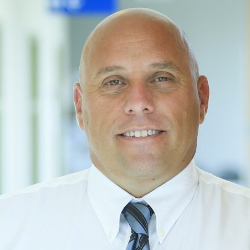
Mario Fournier
Lee Fulford
Ken Lamontagne
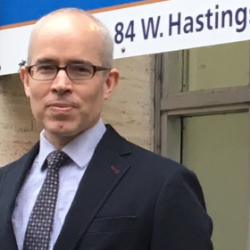
Dr. Scott MacDonald
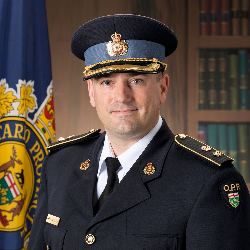
Bryan MacKillop

Dr. Eugenia Oviedo-Joekes

Dr. Heather Palis
Jennifer Pelley
Rachel Remington
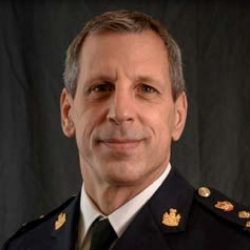
Mike Serr
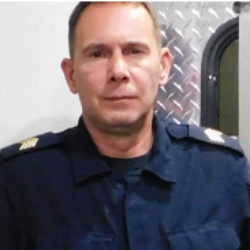
Derek Westwick